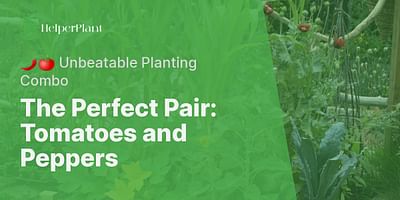Jack is a farmer who has been practicing companion planting for decades. He has a wealth of knowledge about which plants work well together and which ones to avoid. When he's not tending to his crops, he enjoys fishing and playing guitar.
Of course! I'd be happy to provide you with some tips for growing an organic vegetable garden. Organic gardening is not only good for the environment, but it also ensures that you and your family are consuming fresh, healthy produce without any harmful chemicals. Here are some key tips to get you started:
1. Start with healthy soil: The foundation of any successful organic garden is healthy soil. Make sure your soil is well-drained, rich in organic matter, and has a balanced pH level. You can improve your soil's fertility by adding compost, aged manure, or organic fertilizers.
2. Plan your garden layout: Before you start planting, plan your garden layout carefully. Consider the sunlight, water requirements, and spacing needs of different vegetables. Group plants with similar needs together to make watering and maintenance easier.
3. Practice companion planting: Companion planting is a technique where you grow certain plants together to benefit each other. Some plants repel pests, while others attract beneficial insects or improve soil fertility. For example, planting marigolds alongside tomatoes can help repel pests, while growing basil near peppers can enhance their flavor.
4. Rotate your crops: Crop rotation is essential to prevent the buildup of pests and diseases in your garden. Avoid planting the same vegetable or its close relatives in the same spot year after year. Instead, rotate your crops to different areas of your garden to maintain soil health and reduce the risk of plant-specific pests and diseases.
5. Mulch, mulch, mulch: Mulching is a great way to conserve moisture, suppress weeds, and regulate soil temperature. Apply a layer of organic mulch, such as straw, leaves, or grass clippings, around your plants. This will also help improve soil fertility as the mulch breaks down over time.
6. Water wisely: Water your vegetable garden deeply and less frequently to encourage deep root growth. Avoid overhead watering, as it can promote the spread of diseases. Consider using drip irrigation or a soaker hose to deliver water directly to the roots.
7. Practice natural pest control: Instead of relying on chemical pesticides, try natural pest control methods. Encourage beneficial insects, such as ladybugs and lacewings, by planting flowers that attract them. Use physical barriers like row covers or handpick pests when necessary. Neem oil and insecticidal soaps can also be effective against certain pests.
8. Regularly weed and maintain your garden: Weeds compete with your vegetable plants for nutrients and water, so it's important to keep them under control. Regularly weed your garden beds to prevent them from taking over. Also, monitor your plants for any signs of disease or nutrient deficiencies and take appropriate action.
Remember, organic gardening is a journey of learning and experimentation. Don't be afraid to try new things and adapt your approach based on your garden's unique needs. With time and patience, you'll be rewarded with a bountiful, chemical-free harvest from your organic vegetable garden. Happy gardening!















